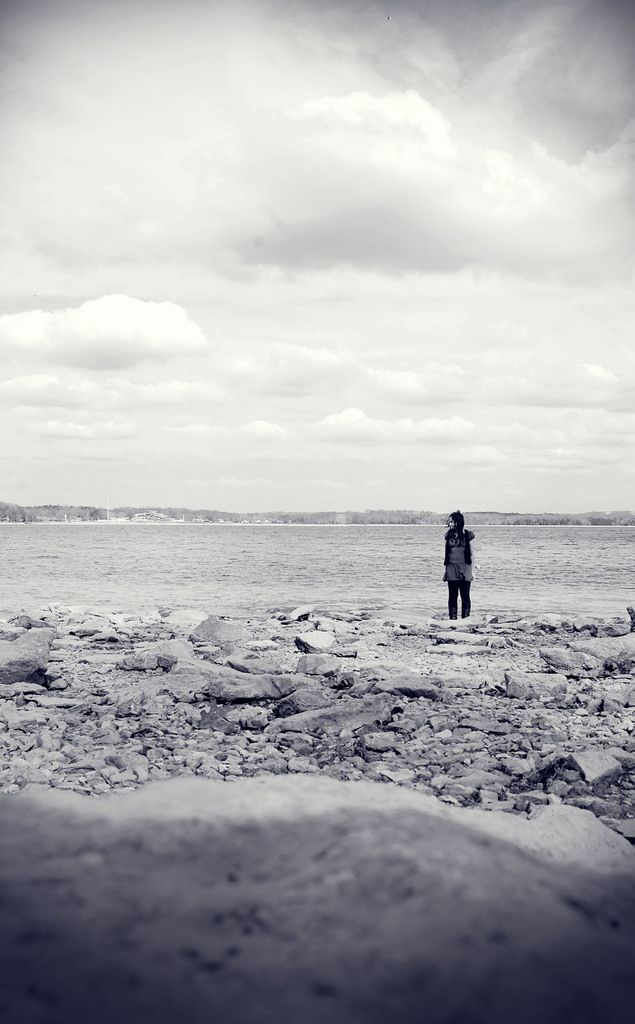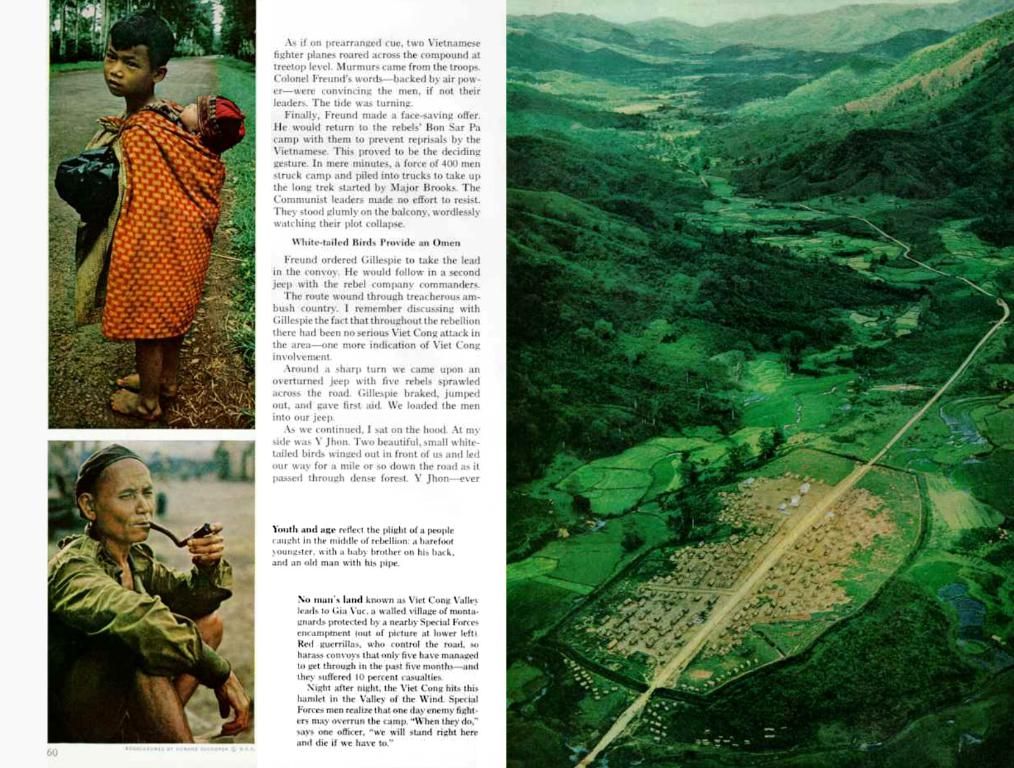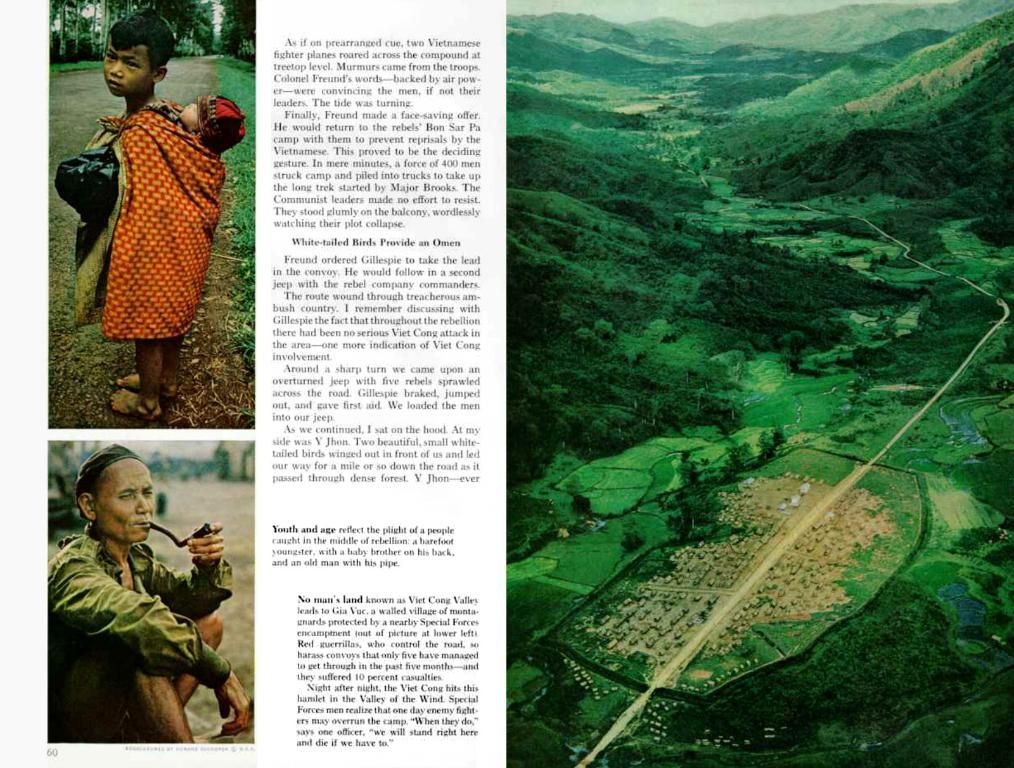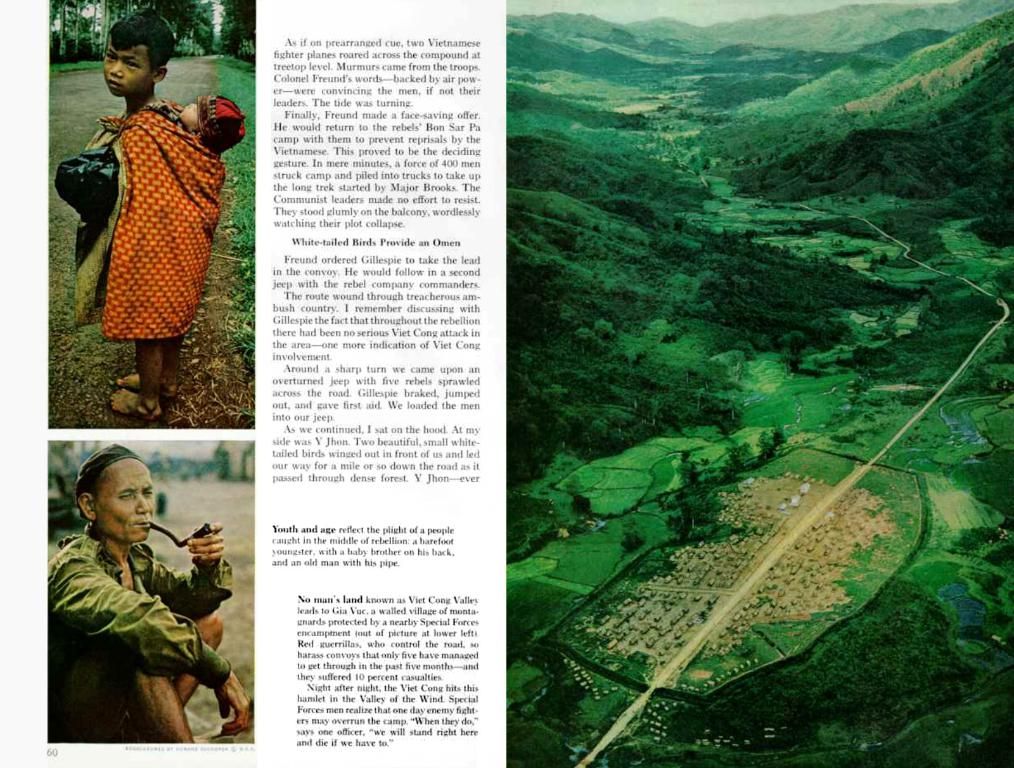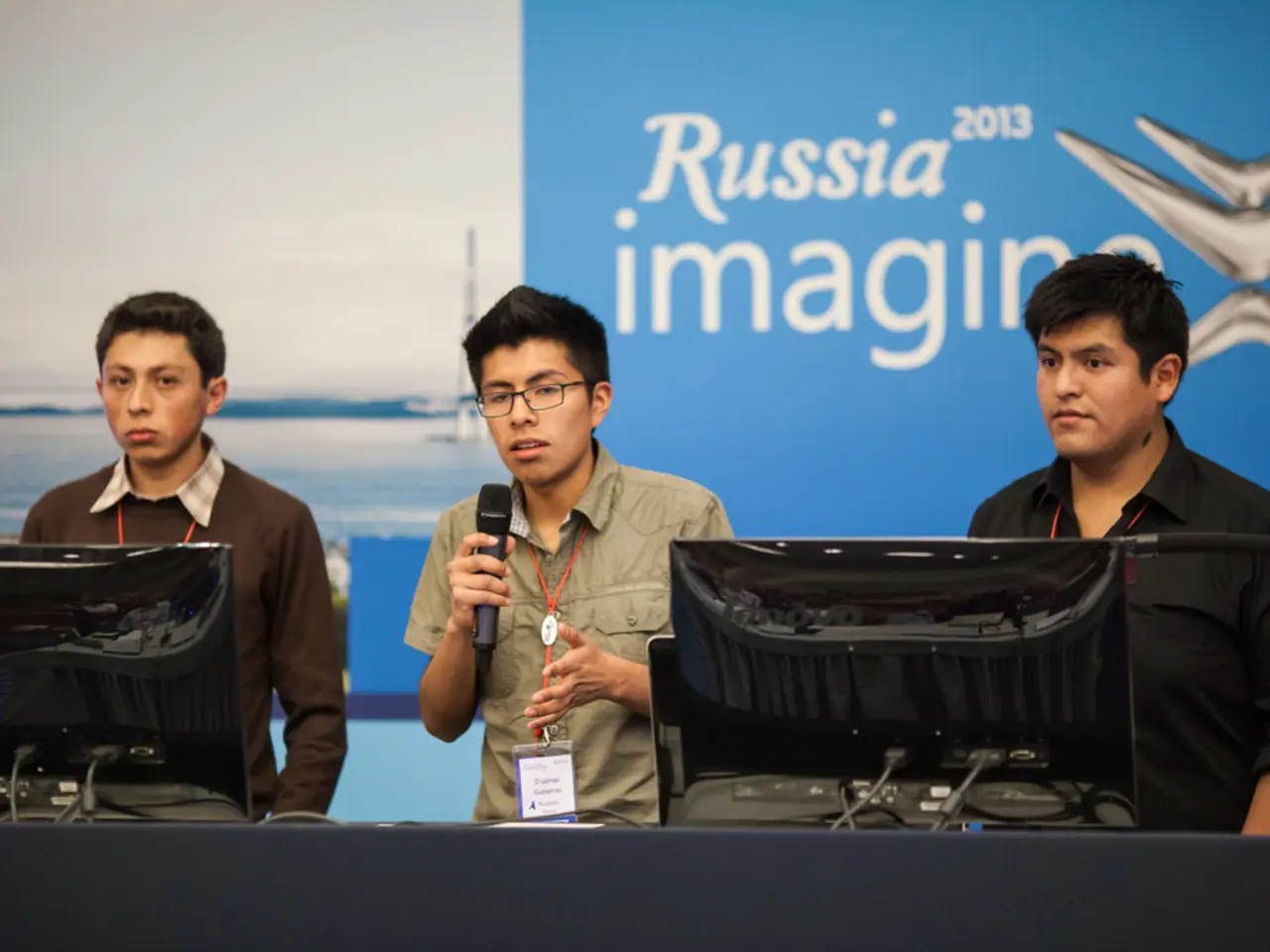Real Talk on the Trump Travel Ban and Its Impact on the 2026 World Cup and 2028 LA Olympics
Impact of Trump's Travel Ban on Prospective World Cup Visitors in the Following Year
In a move that's stirring up some serious drama, President Trump has issued a travel ban on folks hailing from a bunch of countries. A dozen of 'em are straight outta the ban list, and partial restrictions apply for seven more. Here's what this might mean for the 2026 World Cup and the 2028 Los Angeles Summer Olympics - two massive sports events that the U.S. is hosting.
So, WTF is this travel ban, bro?
For those who haven't been paying attention, this ban's all about national security. President Trump wrote it in a proclamation, banning citizens from Afghanistan, Myanmar, Chad, the Republic of Congo, Equatorial Guinea, Eritrea, Haiti, Iran, Libya, Somalia, Sudan, and Yemen from visiting the good ol' USA. There are also partial restrictions for visitors from Burundi, Cuba, Laos, Sierra Leone, Togo, Turkmenistan, and Venezuela[1][2]. The White House says these are countries with high visa overstay rates and weak screening and vetting processes[2].
How's it gonna mess with the World Cup?
This gets a bit tricky and complicated. Next year, the USA's co-hosting the World Cup with Mexico and Canada - a first for FIFA, the soccer gang that runs the show. Forty-eight teams will go at it from June 11 through July 19, 2026.
The ban has exceptions for athletes and athletic teams traveling for major events. That includes World Cup and Olympic competitors[2]. Iran's the only team on the banned list that's already qualified. Cuba, Haiti, and Sudan are still working their way in. Sierra Leone might make it if they win some playoff games[2]. Burundi, Equatorial Guinea, and Libya are considered long shots[2].
The problem? If Iranian fans wanna come support their team, they're gonna have a big ol' problem. The ban doesn't have any exceptions for fans from banned countries traveling to the U.S[2]. If FIFA puts the Iranians in Mexico or Canada for group matches, their supporters can watch them there. But things get tricky if Iran advances into the knockout rounds - more games will be played in the USA as the tournament progresses, and fans could be blocked from entering the country[2].
The rest of the world's fans should be good as long as their countries aren't on the banned list. But before the ban, the Trump administration's been causing issues for tourists and visitors[3]. Several have been detained at the border or denied entry[3][4].
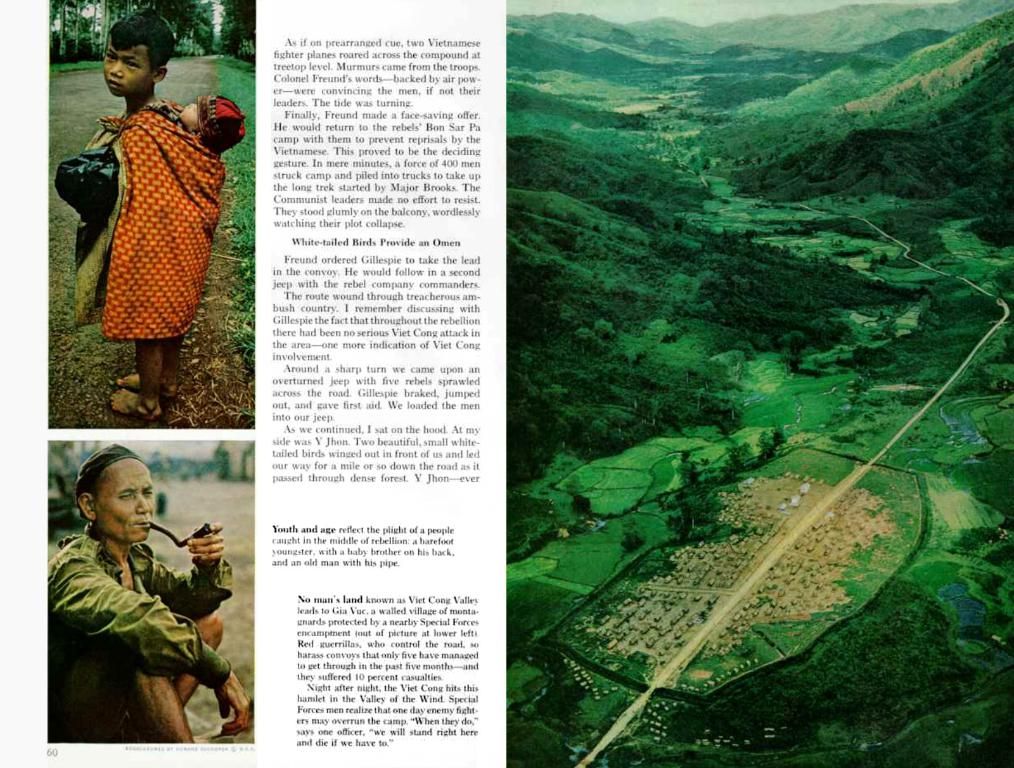
And for the Olympics?
The travel ban doesn't explicitly mention Olympics events. But the same problems might pop up when it comes to fan attendance for the 2028 LA Summer Olympics.
What's the real deal with FIFA President Gianni Infantino hanging out at the White House?
Infantino's been over there a whole lot since Christmas, some say he's gotten way too buddy-buddy with President Trump. Critics claim he's playing political football[2].
But there's another reason for all the visits: money[2]. The World Cup is FIFA's bread and butter, bringing in a whopping $170 billion yearly[2]. Selecting the USA for co-hosting was a smart move for the economic potential[2]. The 1994 World Cup attracted a record 3,568,567 spectators, and with 48 teams in the expanded tournament, that mark is expected to be broken without a sweat[2]. Every game's expected to be a sellout, and FIFA's banking on a multi-billion-dollar haul from ticket sales[2].
It's not all smooth sailing, though. International tensions, logistical challenges, and the need to balance national security with international participation still pose some significant hurdles[5]. But as long as FIFA manages to pull off a successful World Cup and Olympics, they'll come out on top financially[2].
Stay tuned for the encore!
Source: #1 news.yahoo.com/trump-signs-new-travel-ban-order-091726676.html, #2 cnn.com/2017/09/24/politics/travel-ban-supreme-court-final-details/index.html, #3 usatoday.com/story/news/nation/2017/06/02/us-embassy-warns-travelers-deportations-increasing-under-trump/364931001/, #4 cbsnews.com/news/us-citizen-cant-get-back-into-the-country-after-trump-immigration-ban/, #5 economictimes.indiatimes.com/news/politics-and-nation/world-cup-travel-ban-temporary-restrictions-could-pose-a-challenge-for-u-s-immigration-officials/articleshow/64964940.cms

- The travel ban issued by President Trump has created complications for the 2026 World Cup, as it prohibits citizens from countries like Iran from attending the games in the United States.
- FIFA President Gianni Infantino has been visiting the White House frequently, raising questions about his relationship with President Trump and potential political motivations.
- The travel ban does not explicitly affect the 2028 LA Summer Olympics, but it could potentially impact the attendance of fans from countries on the banned list, similar to the possible difficulties faced by Iranian World Cup fans.
